Jesse Eisenberg | 1hr 29min

When David’s Jewish heritage tour group sits down for a dinner together late in A Real Pain, he recounts a joke that his grandmother once told him. “First generation immigrants work some menial job. You know, they drive cabs, they deliver food,” he begins. “Second generation, they go to good schools, and they become like a doctor or a lawyer or whatever,” he continues, building to the punchline. “And the third generation lives in their mother’s basement and smokes pot all day.”
Quiet chuckles echo around the table, yet David’s cousin Benji remains silent. “She said that?” he asks, obviously offended. “I lived in my mum’s basement.” Although the joke is a vast over-simplification of generational immigrant patterns, it is also the cleanest distillation of trauma’s many faces in A Real Pain, fitting David and Benji’s clashing characters into a broader cultural context. While one pushes his “unexceptional” pain down to avoid burdening others, the other openly wrestles with it, swinging between uncomfortable emotional extremes. At the same time though, Jesse Eisenberg’s comedy-drama is not blind to the sensitivity and empathy that are tied deeply to Benji’s turbulent personality. As these cousins reconnect to their Jewish ancestry in Poland, we also witness their reconnection with each other, binding polar opposites together through humour, compassion, and aching grief.

Benji is the first of the two we meet, introduced at the end of a tracking shot which flies past other passengers at JFK International Airport. Eventually it settles on his quiet presence, as still and subdued as we will ever see him. He has been waiting here since the airport opened, he tells his surprised cousin – and why wouldn’t he be? He claims that this is a great opportunity to simply watch the world go by, but given his unemployment and lack of close family, it is evident that he has little else to occupy his time. Despite his laidback nature, there is an underlying loneliness fuelling Kieran Culkin’s incredibly funny performance, longing for authentic, honest relationships. This is ironically something he proves himself very adept at forging too as we see him easily bond with his fellow tourists, yet still deep-seated issues keep him from holding onto anything for the long-term.

There is one major exception here though, represented in Benji’s relationship with this film’s most influential unseen character. He and his grandmother were close like no one else, and her passing has affected him in ways that not even David can understand. Despite their differing life experiences, they shared a mutual respect as blunt yet caring outsiders, trying to make it in a society that cares little for them. Her final parting gift to both Benji and David before passing was this trip to her homeland, and now as they tour its towns, monuments, and concentration camps, the impact of her struggles as a Holocaust survivor manifests in their lives clearer than ever.
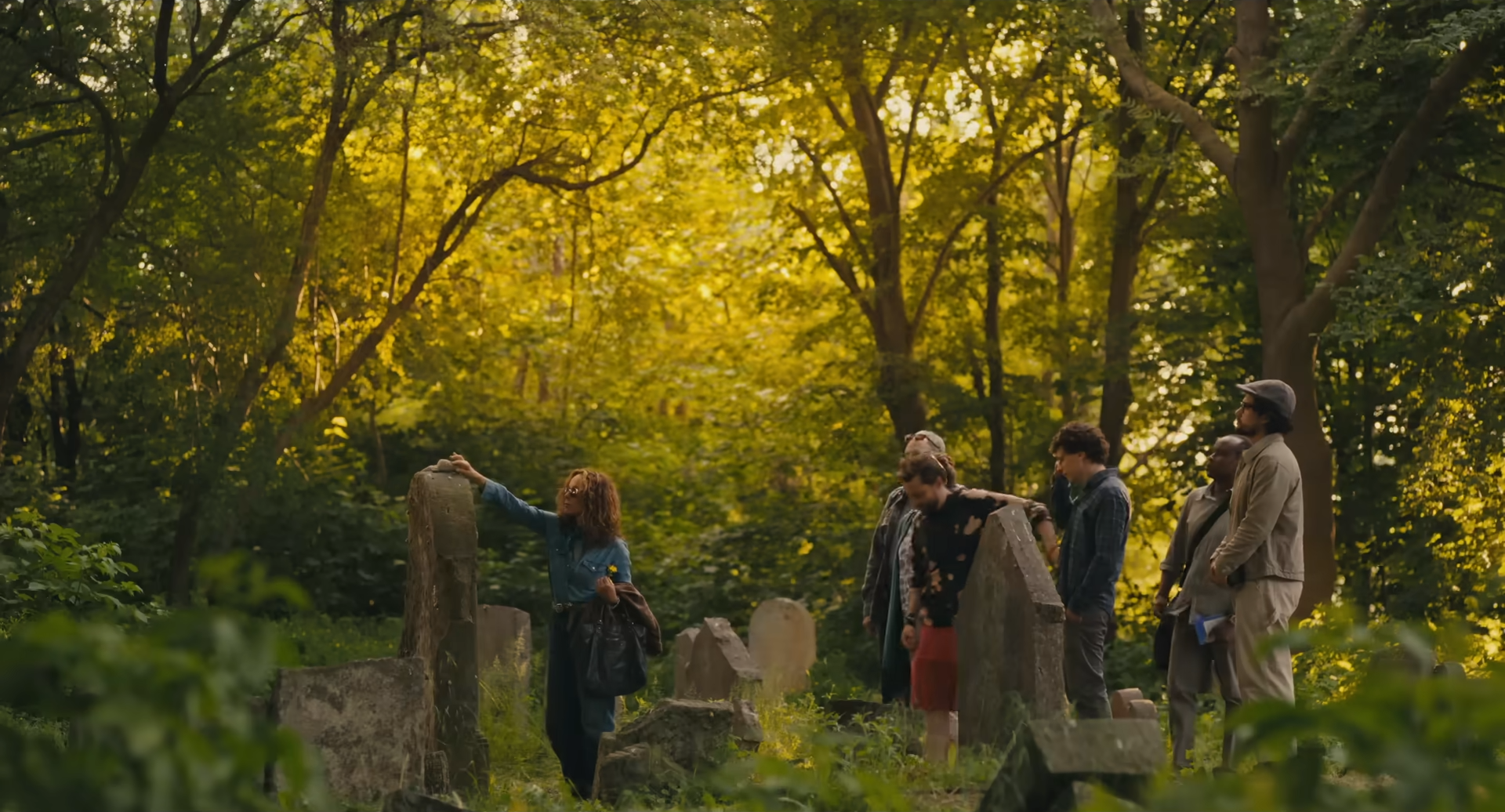
Jesse Eisenberg’s flair for playing neurotic, highly strung characters is no surprise, and his visual direction of A Real Pain is modest at best, so it his talents as a screenwriter which stand out here. Both David and Benji are immensely well-realised characters, and each scene in which they are together efficiently exposes new sides to their dynamic, often seeing the latter passionately engage in the tour while trampling over his cousin’s expectations of polite conduct. Whether Benji is posing with memorial statues or criticising the tour for its clinical approach, David’s embarrassment gradually gives way to tender appreciation, joining the others in embracing his cousin’s playfulness, sensitivity, and jarring honesty.

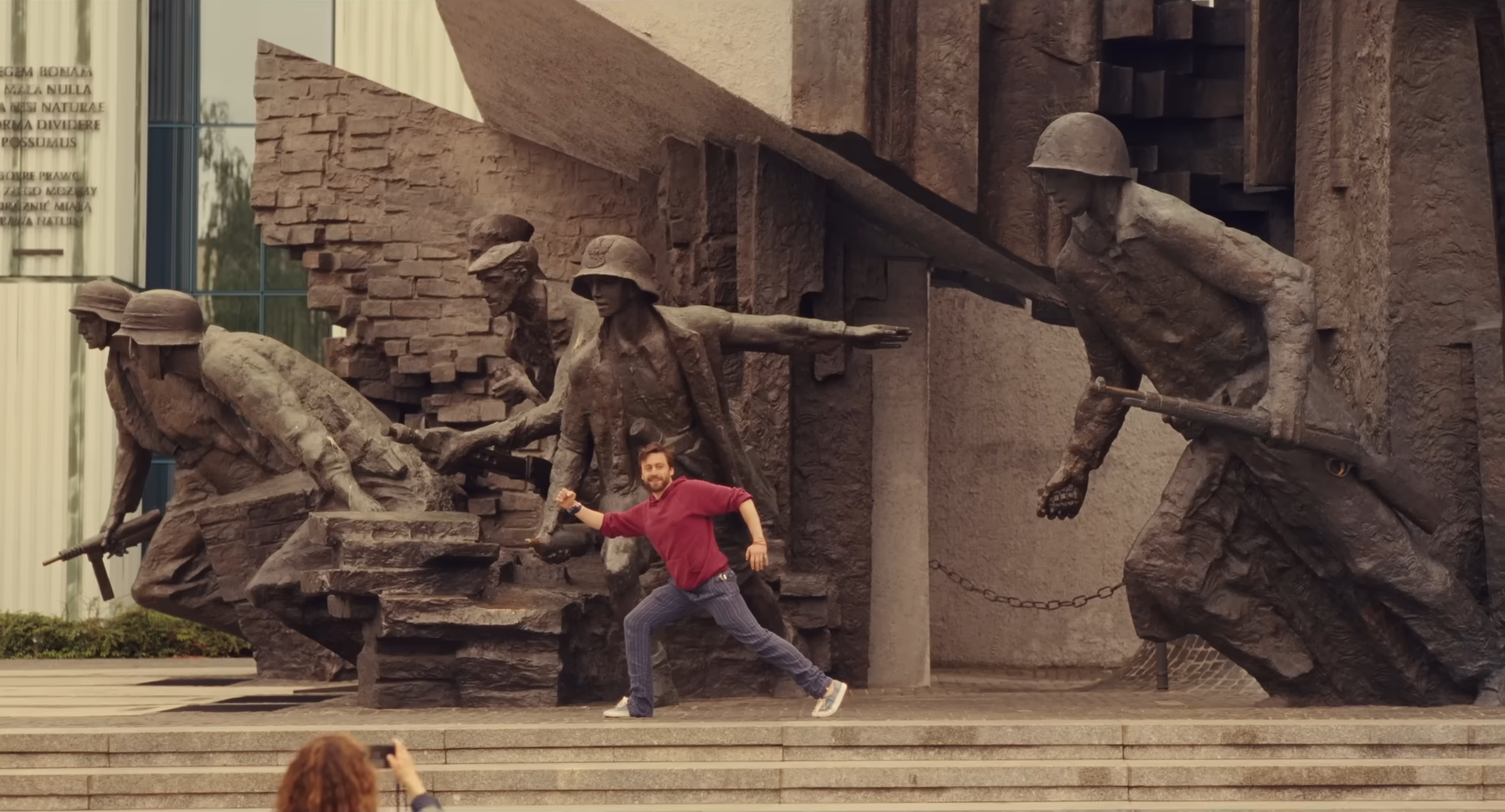
After all, if this Holocaust tour is not the place for Jewish people to communally ponder their complicated feelings of guilt, pride, and heartache, then what is? Eisenberg’s choice to set this story against the Romantic piano music of Polish composer Frédéric Chopin firmly anchors it in a culture of rich artistic expression, playing his airy preludes, nocturnes, and waltzes beneath montages of the nation’s modernist and neoclassical architecture. When the group inevitably visits Auschwitz concentration camp though, Eisenberg drops the soundtrack altogether, dwelling in a grave solemnity which reaches the depths of Benji’s soul. On the bus back to the city, he sobs into his clenched hands, and Culkin pours out a profound, visceral anguish.
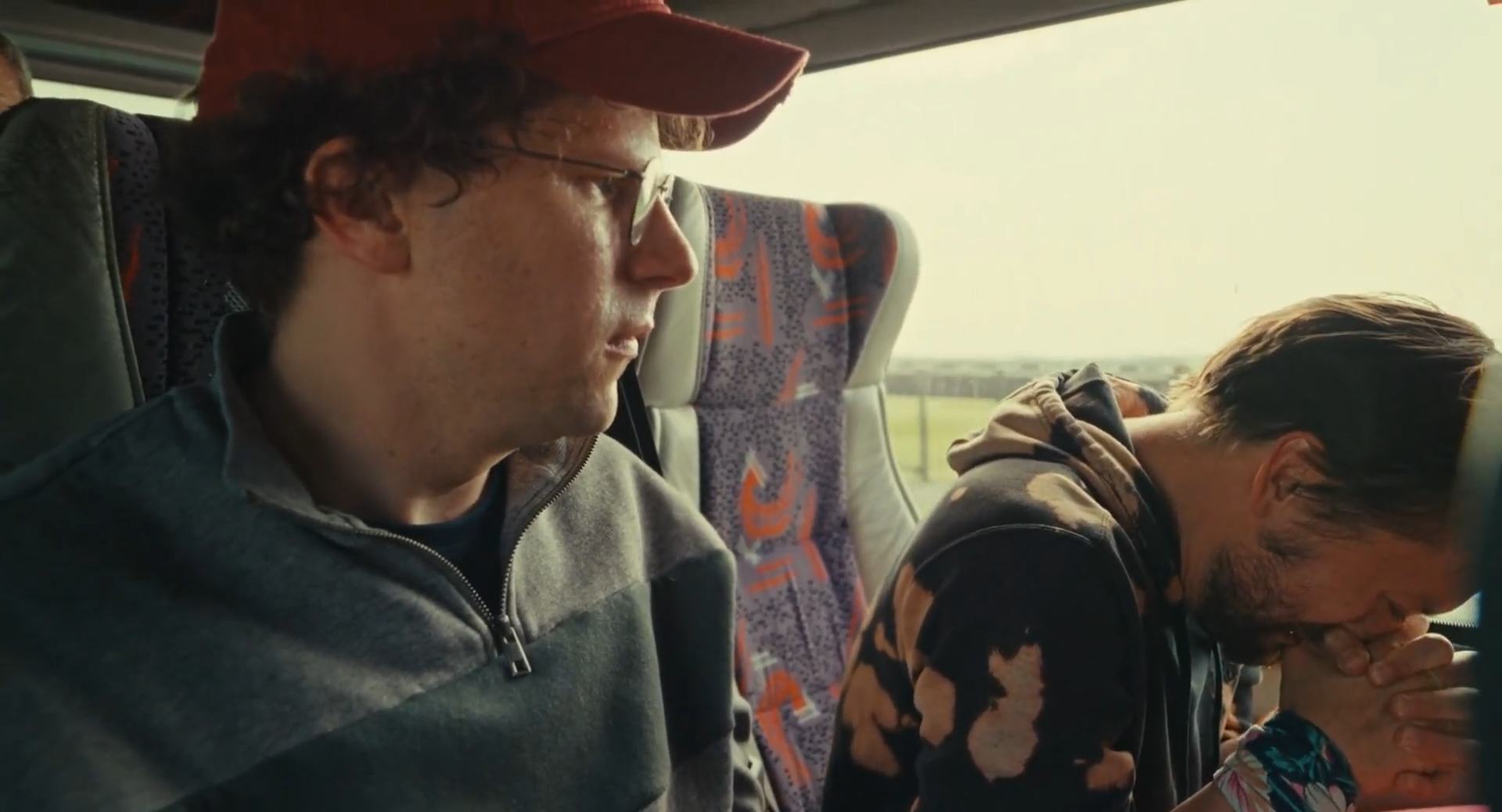
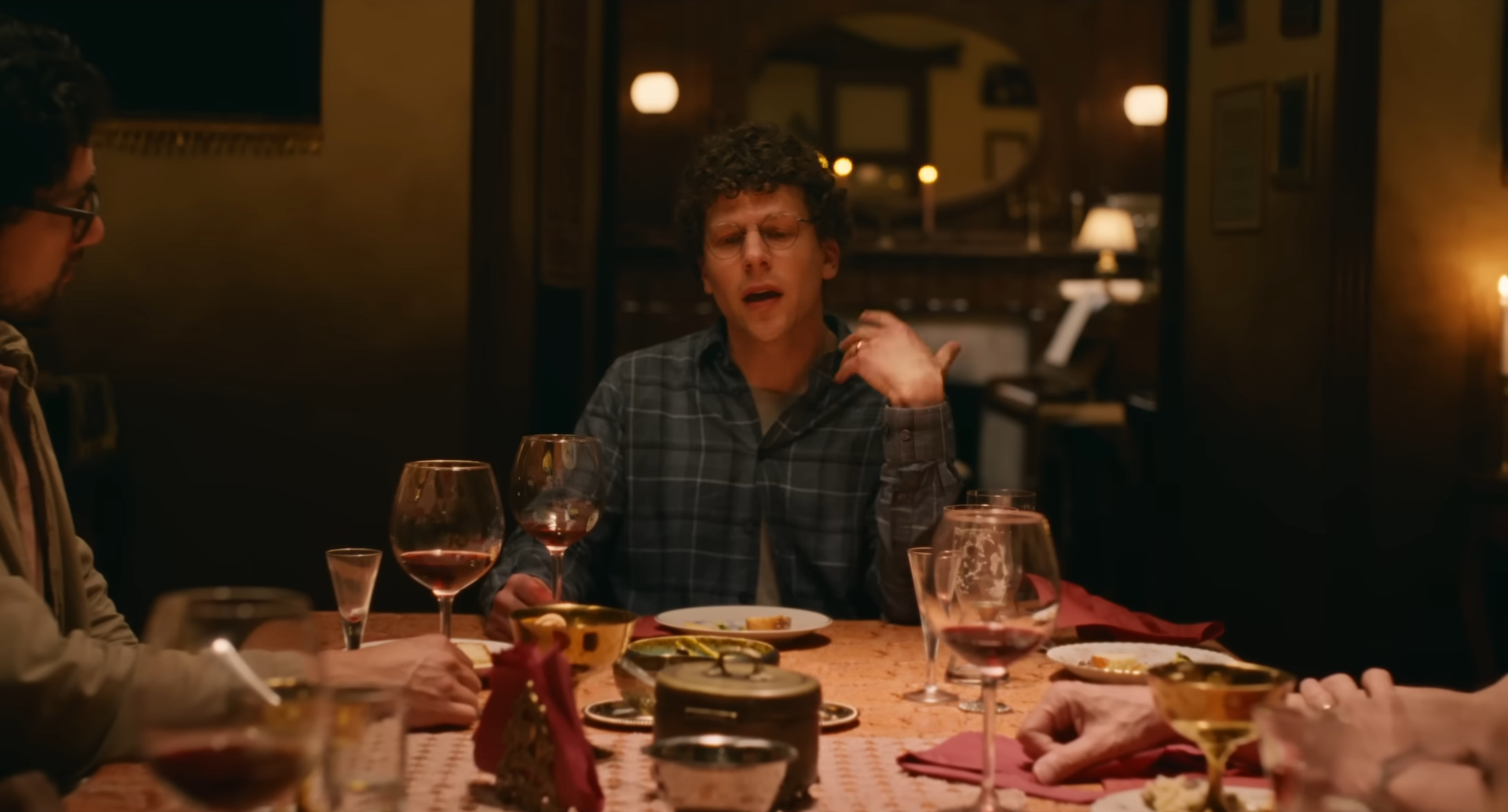
It is rarely made explicit, but there is evidently a deeper reckoning with mental illness present here, intertwined with David and Benji’s complex family history. Both characters are inverse portraits of managing this, and although David seems to function more smoothly, he does not do himself any favours by sealing off his emotions. In fact, despite the appearance of having his life together, he even admits to harbouring jealousy over Benji’s ability to connect with anyone through pure charm and sincerity – not that the modern world always allows room for such public self-expression. When they finally arrive at their grandmother’s old home, this barrier becomes particularly apparent, as their effort to pay humble tribute is quickly shut down by a nosey neighbour.
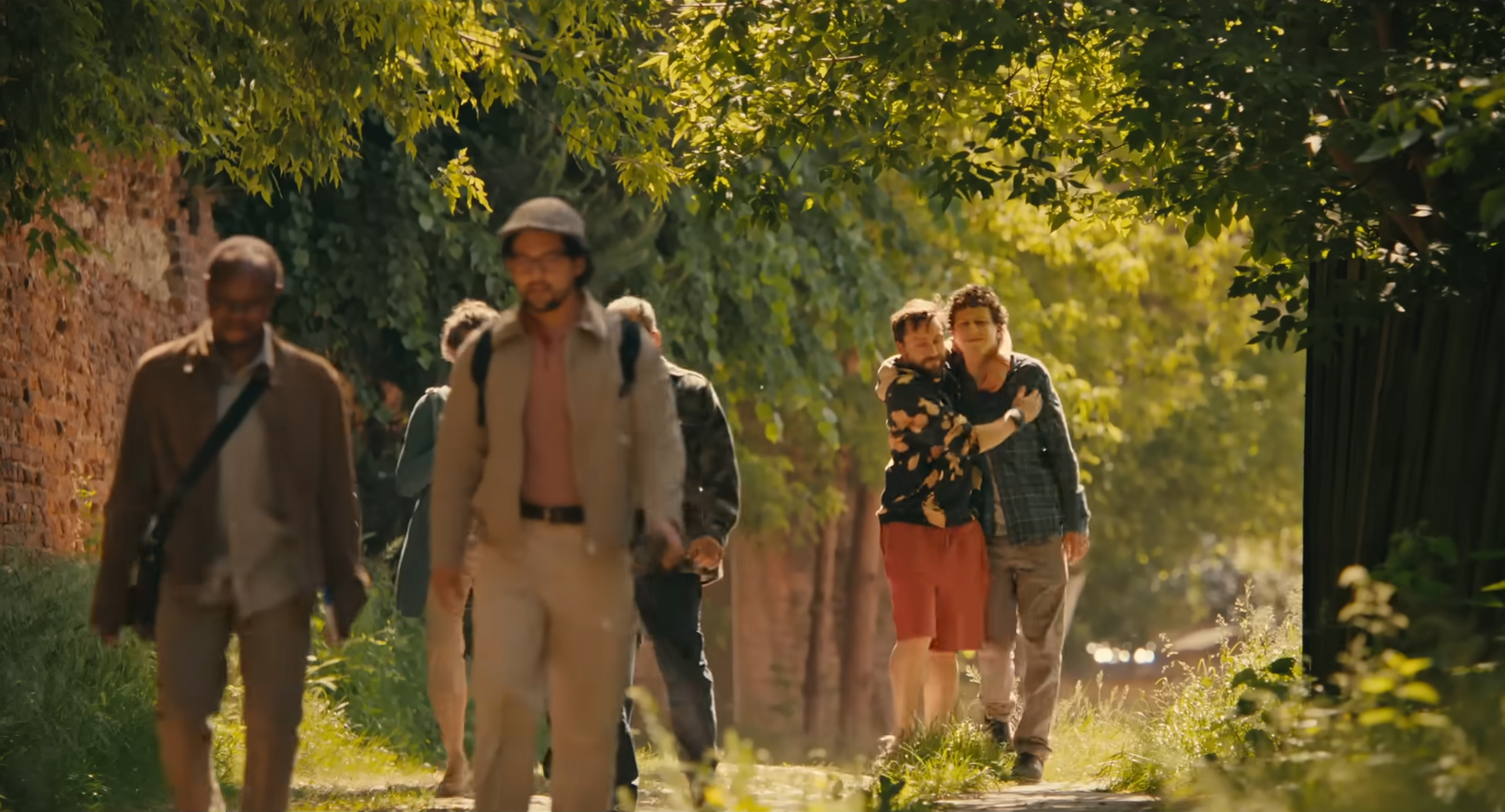

As for whether this journey of enlightenment and reconnection will stay with the cousins upon returning to New York, the conclusion of A Real Pain remains poignantly ambiguous. While David carries a sentimental souvenir with him, Benji appears to be just as directionless as he was before, sitting alone in the airport as Eisenberg formally mirrors the film’s very first shot in its last. David’s invitation to his place is right there, but Benji nevertheless resigns himself to the isolation he is most familiar with, falling back into cycles propagated by generations of unresolved trauma. Eisenberg’s dual character study examines shared bloodlines with affectionate humour, yet history continues to live on in its fragmented offshoots, revealing the depths of human vulnerability and resilience through the burden of inherited sorrow.

A Real Pain is currently streaming on Disney Plus.


Pingback: 2024 in Cinema – Scene by Green